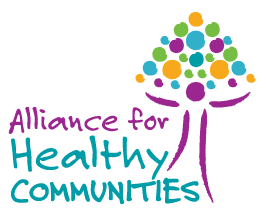
The following op-ed essay was featured in the St. Louis Post-Dispatch on April 6, 2020
By: Dr. Fred Rottneck
Substance Abuse is the Elephant in the Quarantined Room
In this period of coronavirus self-isolation, many of us are spending more time with family than ever. Many adults are working remotely, students are home from schools and universities, and people with unstable housing have moved back in with family members and friends. At the same time, layoffs, furloughs and indefinite closures of businesses both large and small are increasing time spent at home.
In addition to the uncertainties we all share, many individuals and families who are designated as essential on-site workers have significant concerns about bringing the virus home from their workplaces. Sheltering in place with those who go out into the world every day has generated widespread, low-simmering anxiety in households across the country.
Trying to make the best of a bad situation, we all are looking for good ways to spend our unexpected time together. Extra time with family will likely help us get to know each other better and in ways we may not have thought of previously. For example, we may not be aware of substance use disorders among our loved ones.
In recent years, public health efforts have focused on opioids — particularly synthetic opioids such as fentanyl — as the supply has skyrocketed, delivery systems have created unlimited access to it, and the unpredictable and increased potency of the newer synthetic opioids has turned risky use into deadly overdose.
But the coronavirus crisis has disrupted these supply chains, limited supply and elevated prices. And people are confined to their homes — with addictive substances that are legal and accessible. Chief among these are alcohol and tobacco. The National Survey on Drug Use and Health informs us that far more people die every year from alcohol use than from opioids. In fact, more than five times as many people die from complications of tobacco use than opioid use. Yet these addictions have been overshadowed in recent years by the immediacy of opioid deaths.
I was taught in my residency that the plural of anecdote is not data. However, we have seen an escalated number of phone calls at my clinical practice for alcohol treatment in just the last few weeks. We expect this trend to grow as people turn from one substance to another to soothe their jangled brain chemistry rocked by opioids, amphetamines and other drugs that have been bottlenecked by travel restrictions and quarantines.
Liquor sales are soaring around the country. Tobacco and e-cigarette sales will likewise climb. People are scheduling virtual happy hours, and many will simply increase drinking in isolation.
This pandemic brings us, not only quarantine, but social isolation, unemployment and a great deal of insecurity and uncertainty around finances, food and housing. This is kerosene for an escalation of risky substance use and the worsening of mental illness.
Treatment is available, but we must have honest conversations with our quarantined friends and family members. Ask about substance use habits with love and patience. Pay attention to changes in behaviors. Minimize access to alcohol and other addictive substances. Engage in physical activity, and when possible, get some fresh air.
And what’s better than treatment is prevention — especially when it comes to young people. Risky behavior among youth is more tempting when people are bored and when activities they value are limited or suspended. Now is the perfect opportunity to be mindful and structured about time spent with younger family members and to broach challenging conversations we often feel too busy to have.
Now is the time for community, families and friends to face the elephant in the room: our discomfort with direct communication around addiction and mental illness. Let’s prevent risky behavior and addiction when we can and advocate for treatment when that’s what’s needed. Many of us have the time on our hands right now to show our loved ones that we do love them.
Quarantine can provide opportunities for stronger relationships and better health and well-being. It certainly beats the alternatives.
Here are some resources to help in starting these conversations and identifying next steps:
NCADA (ncada-stl.org): Experts in prevention and connections with young people.
ARCHway Institute (thearchwayinstitute.org): Experts in having conversations with individuals and families when you don’t know what to ask.
Mental Health America of Eastern Missouri (mha-em.org): Experts and resources that foster health and resiliency.
Assisted Recovery Centers of America (arcamidwest.com): Outpatient and virtual addiction medicine.
Missouri Department of Behavioral Health (dmh.mo.gov/alcohol-drug): Information and collaboration with statewide providers and resources.
Dr. Fred Rottnek is a professor and program director for the Addiction Medicine Fellowship in the department of family and community medicine at the St. Louis University School of Medicine. He practices at Assisted Recovery Centers of America.

Comments 2
Fred great article. There are many treatment providers who are still offering a continuum of services including prevention and aftercare, like Preferred Family Healthcare
Always interested in hearing what Dr. Rottnek has to say. This blog is instrumental helping to spread the word. A big thank you to Dr. Rottnek and the AHC.